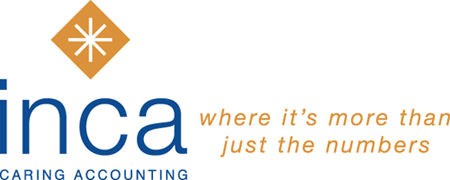Are You at Risk from Fake HMRC Emails & Texts?
We’ve blogged a lot recently about Making Tax Digital, the government’s plan to transform tax administration. It’s less than a year until the scheme begins to be rolled out, with businesses and self-employed individuals registered for VAT first to be required to provide HMRC with digital records from April 2019.
Up to now, communication with HMRC for most businesses will generally have been by mail or by phone, but one of the consequences of Making Tax Digital is that it’s quite likely we’re all going to be receiving electronic correspondence from HMRC in the future.
While this will make dialogue faster and more convenient, it does also open up opportunities for fraudsters and criminals. Most of us have probably received a scam or phishing email at some time or another. But at least prior to Making Tax Digital, if an email purporting to come from HMRC landed in your inbox, you could be fairly certain it was a scam.

Even so, this hasn’t stopped criminals using HMRC as cover to try and get innocent tax payers to part with their money.
In 2014, HMRC revealed that almost 75,000 scam emails were reported in just 6 months – most of them promising a tax refund, and requesting personal information. And it’s not just emails. HMRC has warned that fraudsters are sending text messages with their logo to unsuspecting members of the public, usually including links to websites that harvest personal information or spread malware.
With the arrival of Making Tax Digital, we’re likely to see an upsurge in new and more sophisticated email scams, and because communicating electronically with HMRC will be far more commonplace, identifying what’s real and what’s fake is going to get harder.
What Can You Do to Protect Yourself from Fake HMRC Emails & Texts?
- Review your online security
Of course, fake HMRC emails are not the only online risk your business faces. You should review your online security policy regularly with your IT systems provider to ensure you have all the necessary defences in place to protect your business from evolving threats.
- Appoint an accountant
No, we’re not suggesting that an accountant is a substitute for a robust online security policy. But if you’re not already working with one, doing so will help to make sure you don’t get caught out by fake emails, texts – or any other fraudulent communications supposedly sent by HMRC.
How? You can authorise your accountant to have conversations on your behalf with HMRC. ‘Agent authorisation’ allows you to select which aspects of your tax affairs you’re happy for your accountant to discuss with HMRC direct. With authorisation in place, they’ll be able to log into your online HMRC account to access permitted areas.
What Should You Do If You Receive a Suspicious Email or Text?
If you do receive an email or text message that looks as if it’s come from HMRC, it’s always wise to be cautious in the first instance:
- Don’t automatically click on any links as these might contain malware or a virus that could infect your system, and certainly never give away any personal information.
- Log onto your HMRC online account to see if there’s any information there to indicate the email or text is credible.
- If you’re still not certain the communication is genuine, forward it to your accountant who will be able to determine whether it’s legitimate and requires action.
Get Total Peace of Mind & Protect Your Business from Scams: Authorise Inca to Liaise with HMRC for You!
Few things are likely to distract you from getting on with your business as much as an unexpected communication from our friends at HMRC.
But this isn’t something Inca clients have to lose sleep over. Firstly, as part of our regular service and at no additional cost (unless we need to write or prepare responses), they can simply authorise us to speak with HMRC on their behalf – so they know there will never be any nasty surprises. And secondly, if an Inca client does ever receive a communication from HMRC and is unsure about its provenance, we can quickly look at it for them and verify if it’s the real thing or a fake.
Need advice?
Find out more about the benefits of becoming an Inca client. Call us now on 0123 586 8888 for an initial chat and to arrange a meeting!




